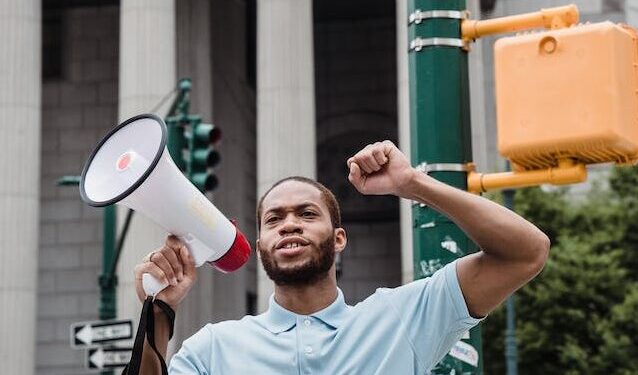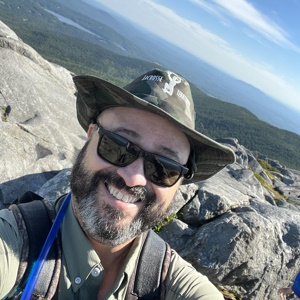
Burnout almost led me to take my own life. It destroyed my identity as a surgeon. My medical identity and my life were so enmeshed that losing medicine caused me to mourn my own death. From this low point, I have rebuilt. With lots of intensive therapy, and regular mindfulness and other wellness practices I’ve been able to rise from the depths. Hear me! Hear my surgeon’s story!
I am now dedicated to helping those in healthcare who are suffering from any degree of burnout. A significant factor driving my recovery continues to be participating in peer support groups. I’ve been a member of two different peer support groups since my rock bottom. Sharing my experiences and empathizing with others is powerful and immensely beneficial.
I hope sharing this brief overview of my story sparks some curiosity and perhaps even the motivation to give a Physician’s Anonymous group a try.
Burnout almost led me to take my own life. It destroyed my identity as a surgeon. My medical identity and my life were so enmeshed that losing medicine caused me to mourn my own death.
My surgery professors taught that surgeons were “sharks”: top of the food chain, super-humans, smarter and better than other doctors who practiced “lesser” specialties.
Requesting a consultation from another physician was considered a sign of weakness; surgeons knew everything about everything in medicine and could perform the most complex, high-risk operations.
We didn’t transfer high-risk, complex cases to other institutions, lesser surgeons transferred them to us.
The answer was always yes: we took on anything and everything, calling ourselves the “cloaca” of surgical care.
The mantras (with apologies to Samuel Shem, author of The House of God) were: “If it doesn’t kill you, it makes you stronger. Don’t worry, it gets worse. They can always hurt you more. Pain is just weakness leaving the body. The beatings will continue until morale improves…”
Looking back, I am astonished by how whole-heartedly I embraced being this superhero version of a surgeon.
But I truly believed, “I can do it all!”.

The surgeon: Apex predator?
Being a surgeon left no room for being a human being.
Looking back, I suffered from empathy fatigue, emotional and physical exhaustion, cynicism, and depersonalization. I endured a negative sense of self-worth and professional accomplishment/fulfillment.
Denial prevented me from even realizing I was a narcissist with toxic perfectionism.
I toiled unaware that the imposter syndrome had become a part of me causing me to live through a never-ending loop of the arrival fallacy.
I learned, too late, about moral injury and how the myriad number of ways the corporatization of medicine had destroyed my humanity toward what became the end of my career. By then it was too late for me…
Fortunately, I didn’t give up. I learned that I was enough. That self-care isn’t selfish. I began to take ownership of my life and set boundaries.
Instead, I felt alone. I didn’t just think I wasn’t being heard, I felt I didn’t have a voice. I’ve needed a three-month partial hospitalization program followed by years of intensive aftercare therapy and now ongoing therapy to become a human being again.
I’m still unable to describe how empty and dead I felt at my lowest point. I felt that I had failed as a surgeon, I felt that meant I had failed as a person which meant I WAS a failure. I didn’t just feel worthless; I felt worse: that my existence had negative impacts on those around me.
Fortunately, I didn’t give up. I learned that I was enough. That self-care isn’t selfish. I began to take ownership of my life and set boundaries. I came to realize that to give my best to others I needed to be my best. I began to understand that I can’t pour from an empty cup. I began my journey back to being a human.
My prospects seemed so rosy when I was training to become a surgeon. I fully bought into the idealized version of a surgeon that I was supposed to be.
I learned the ABCs of surgery: Accuse, Blame and Criticize. I may have been wrong, but I was always sure I was right. Surgeons never admitted they were wrong (except at M+M conferences supposedly; looking back there was a lot of “things happen…”).
I KNEW I wasn’t suffering from burnout (even though I was). It took decades before I could even admit that to myself and several more years before I could admit it to another human being.
And even then, being a surgeon meant I was superhuman – I can handle it, toughen-up and overcome burnout — all by myself.
Part 1 of this couple of articles details how I got sucked into the superhero delusion of the stereotypical surgeon. How I swallowed it whole and it made me sick.
Part 2 describes what I did about it and how I am now.
To find out more about our FREE physician-only peer-support groups, please click here.
Thanks for reading!
Brian
